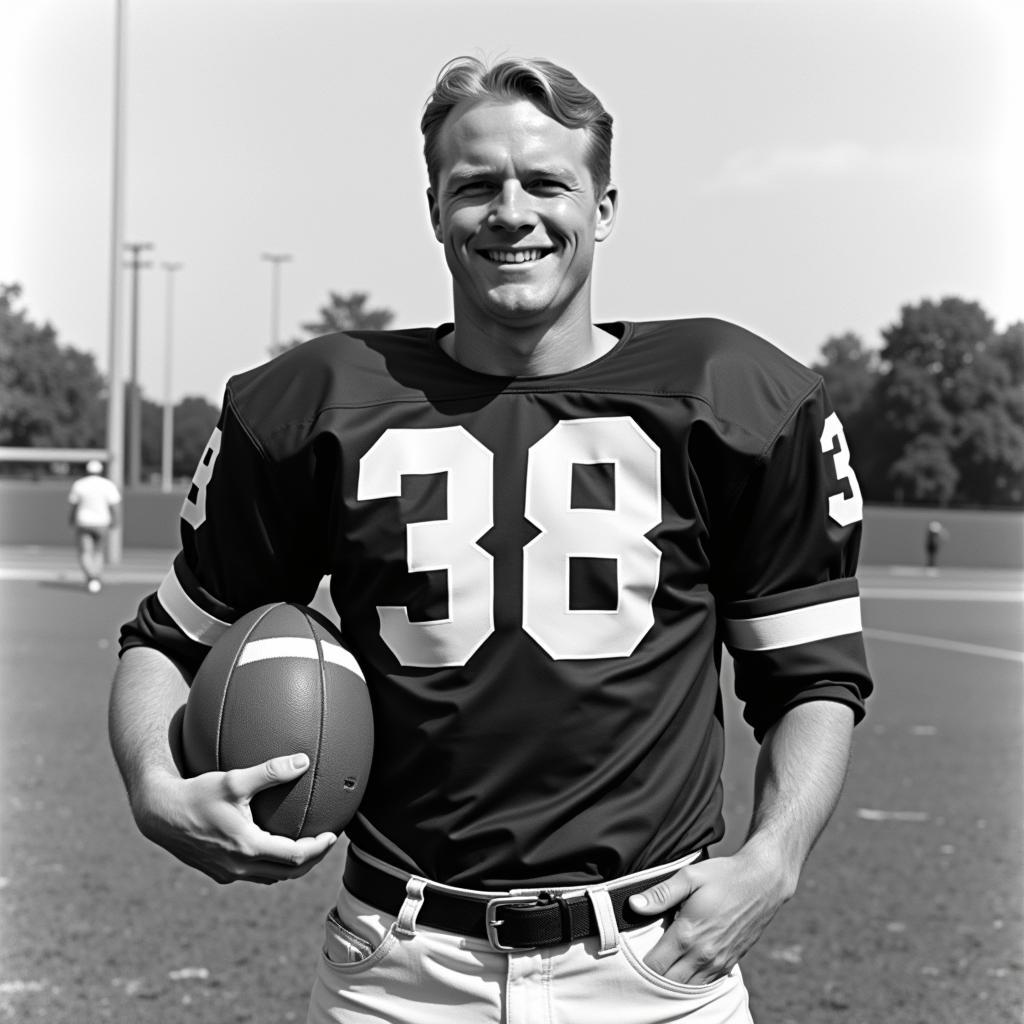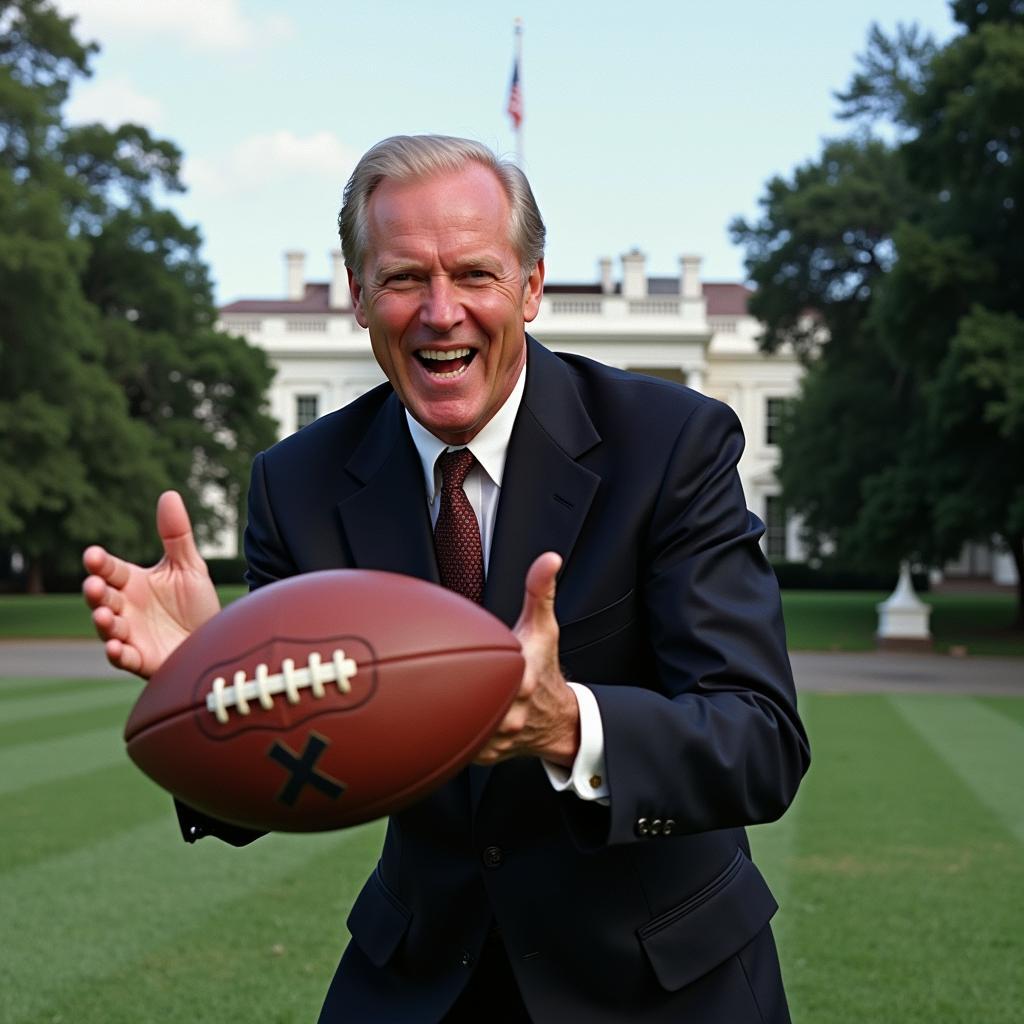The world of football is brimming with tales of triumph, dedication, and unexpected connections. One such story takes us beyond the roar of the crowds and the bright lights of the stadium, right into the heart of American politics: the White House. While many may dream of scoring a winning goal or lifting a championship trophy, one football player found himself living within the historic walls of 1600 Pennsylvania Avenue.
From Gridiron to Government: An Unlikely Journey
 Gerald Ford playing football at Michigan
Gerald Ford playing football at Michigan
It may come as a surprise to many that the 38th President of the United States, Gerald Ford, was once a prominent figure in the world of football. Long before his days in the Oval Office, Ford honed his skills on the gridiron as a center and linebacker for the University of Michigan Wolverines. His dedication and talent were evident, earning him a starting position on the team and even two national championships in 1932 and 1933. Ford’s prowess on the field wasn’t just a testament to his physical abilities but also his leadership qualities, traits that would later define his presidency.
A President with a Passion for the Game
 Gerald Ford tossing a football at the White House
Gerald Ford tossing a football at the White House
Even after his football days at Michigan, Ford’s love for the sport never faded. He often reminisced about his time on the field and the valuable lessons it taught him about teamwork, perseverance, and striving for excellence. These lessons, he believed, were not confined to the realm of sports but extended to all aspects of life, including leadership and governance. While residing in the White House, Ford installed a swimming pool that doubled as a dance floor for state dinners. However, he made sure the pool’s design included a retractable cover, allowing him to practice his golf swing and even toss a football around, keeping the spirit of the game alive within the very heart of American power.
A Lasting Legacy
Though Gerald Ford’s journey in the world of football took a turn towards politics, his connection to the sport remained a defining part of his identity. His story serves as a powerful reminder that leadership can be nurtured in the most unexpected of places and that the lessons learned on the field can have a profound impact on the course of history.